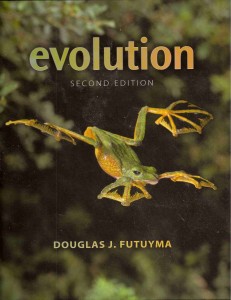
Could gender equality theory be like a radar, or a compass, beyond current feminist theory and gender theory? Can it be based on a critique of conventional gender theory? Can it develop major new insights?
These are problems I shall be working with, this spring, based on three months of author stipend.

Arcade fire, The Suburbs, comes close. So does Arthur’s Landing, Yeasayer and others played a lot recently, including Amanda Palmer and John Grant. Pop is not about enhancing success, it is about raking the claws of life into the superficial face of the winner, the uproar under the song of success. It sings from below as much as above. Good pop is social reportage and comment, combined with good music, by my reckoning.
I may be a dinosaur. My judgement is basically the same since I heard the first great pop songs of the Beatles, the Kinks, and others, in my youth. Yet I feel proud, not shamed. Like, Let England shake ( P J Harvey). This is a great way to judge music, as relevant as ever. Social reportage and comment meaning an extended sense of democracy, a core theme of good pop music.

“For example, in an important sense, there is only one complete unblushing male in America; a young, married, white, urban, northern heterosexual Protestant father of college education, fully employed, of good complexion, weight and height, and a recent record in sports. Every American male tends to look out upon the world from this perspective.” – Erving Goffman, Stigma

On my reading list – and now – on my table. More to follow. Penguin Classics 2009, from the second edition 1890.
Regarding Darwin, interpretation is clearly needed, ability to sort wheat from chaff. For example, he has a lot of racist comments in his work on sexual selection (also recieved, some of it read). One cannot take this on face value, it would resemble taking the old testament on face value in creationism. In Darwin as in other cases the interesting thing is the sense of science beyond the sentiments of the day – that were present there (as in the writings of e g Marx and Freud). This is what challenges the reader, and makes for a captivating story, even today.

This historical novel, published by Spartacus, 2009, has been applauded by e g professor Kåre Lunden (“a picture of life in the 13th century”). Review to follow.

This is a good conventional take on science history, with little problematization of gender or who was heard or not heard.
Very well written “within the frame”, not a good guide to the framing.
– Preliminary report, one third read, March 2011

This is one of the few books I have recieved in the last year that I have cast into the category “a difficult read”. This is not a common category in my case, but some books end there.
Another case is Elliot Sober: Evidence and evolution, 2008. In both cases I wonder, is it necessary to present the arguments in such a convoluted and difficult way. I tend to put them down, after reading some sentences. Although both authors have important things on their mind.
This may be just my limited reception, I will get back, but it remains my early impression of these works.Norrie, for example, seems unenlightened considering gender studies. On page 132 he restates his general position, discussing how Bhaskar’s philosophy coincides with that of Habermas, figuring “equality, liberty and fraternity” as main agent – with no further reflection concerning the possibly quite slanted ideal of “fraternity”, although he does mention that “feminists” have had something to say here .

Douglas J. Futuyma’s Evolution is an impressive work on many accounts, well provided pedagogically with colour illustrations and examples, interesting to read.
The research sensibility and evaluation seems good. Mainly, this book has a lot of new information, conveniently ordered, and often (but not always) well explained. More to follow.

Englund, Peter 2008
Stridens skønhet och sorg. Førsta varldskriget i 212 korta kapittel
Atlantis, Varnamo
For understanding the last part of the 20th century, including the second world war, the earlier part including the first world war remains an enigmatic background. Here is a good research-based update, written to get the reader into the mood of 1914-18, by a pioneer Swedish historian. I have read the first third of the book, and although it is a bit too wordy, it gives a good picture.

Who is going to bear the costs, of Libya divided? Scenario one, a victorious Arab democratic revolution. Scenario two, some tyrants resisting, mixed picture, civil war. What is the best solution? The first, most of us would think, but how can it be achieved? The young generation “new configuration” of the new Middle East was created by the revolutions in Tunis and Egypt – but even there, each inch of progress is hard-won. In a recent event, pro-democracy protestors in Egypt, demanding their right to overlook the security service, were attacked and beaten. Should the Arab world face this democracy issue alone, or should the rest of the world support them? The answer obviously is yes, this is a global issue. We are not living in fascist times – are we? But then the question is, how to support the democratic struggle, with many divided voices. A debate going on while the democracy fighters of Libya and elsewhere are dying, taking the load for the world community. Unorganized idealists against a fascist thug army. Do we want a repeat of the Spanish civil war?




